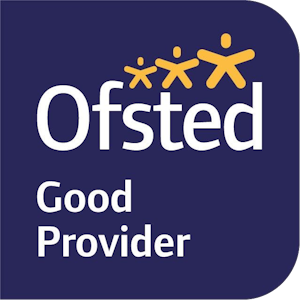Early Years Foundation Stage
At Kimpton Primary School we believe that every child deserves the best possible start in life in order for them to fulfil their potential. Our Nursery and Reception class is referred to as the Early Years Foundation Stage. In these year groups we follow the Statutory Framework for the Early Years Foundation Stage. Development Matters (Revised 2021) and Birth to 5 Matters 2021 are documents which are used to support our teaching.
A secure, safe and happy childhood is every child's right. A strong parent partnership with school provides the foundation children need to make the most of their abilities and talents as they grow. We use a floor book to record examples of adult-child interactions and share information with parents. Our floor book also allows the children to look back on and discuss previous learning, and is regularly shared with parents..
The Kimpton vision sets out for all of our children, the importance of feeling safe and happy so that they are ready to learn. We want the children in Early Years to be inspired with a love of learning, achieving today and ready for tomorrow with a curiosity to know and understand more. We have a variety of planned sequences of teaching that we use along with our Unique Curriculum Ambitions - aspirational skills that we want all children to achieve by the end of Reception. Our Early Years' curriculum follows the children’s interests, ensuring the learning is relevant, challenging and exciting.
As children commence their journey at Kimpton Primary School, we begin to develop and nurture strong positive attitudes developing and following the K Factors (Respect, Responsibility and Resilience) which are encouraged through all aspects of the school.
For details of our Nursery offer please go to our Nursery Admissions page.
The Early Years Foundation Stage consists of seven areas of learning:
Communication and Language
Your children will learn to speak and listen in a range of situations. They will be engaged in activities which will broaden and enrich their language and vocabulary. They will develop confidence and skills in expressing themselves in a variety of different ways. Upon entry to Nursery and Reception we assess children's communication and language using the WellComm tools. This allows adults to identify early on which areas children are confident with and which areas may need some additional support.
Physical Development
This develops children’s co-ordination, control and movement. It also involves learning about the importance of physical activity, and guides children on making healthy choices in relation to food. Both Nursery and Reception have a PE slot each week to further develop their physical skills. We use a program called Get Set 4 PE to support teaching.
Personal, Social and Emotional Development
This involves children developing a positive sense of themselves and others; forming good relationships and respect for others; developing social skills and managing their feelings and behaviour; and developing confidence in their own abilities. We use the Jigsaw PSHE program to support our teaching.
Literacy
Children will learn to link sounds and letters and be encouraged to develop a love of books. They will begin to read and write. We use ReadWriteInc to support the teaching of our phonics.
Mathematics
Children will develop and improve their skills in counting, understanding and using numbers. They will begin to solve simple problems involving addition and subtraction. They will also learn to describe shapes, spaces and measures. We follow the Herts for Learning Reception Essentials for Maths materials.
Understanding the World
This involves children making sense of their physical world and their community. They will have opportunities to explore, observe and find out about people, places, technology and the environment. The children's use and understanding of technology is supported through the Purple Mash scheme from Reception onwards.
Expressive Arts and Design
Children will explore and experiment with a wide range of materials and media. They will also be encouraged to share their thoughts, ideas and feelings through a range of activities in music, movement, dance, role-play, art, and design and technology.











